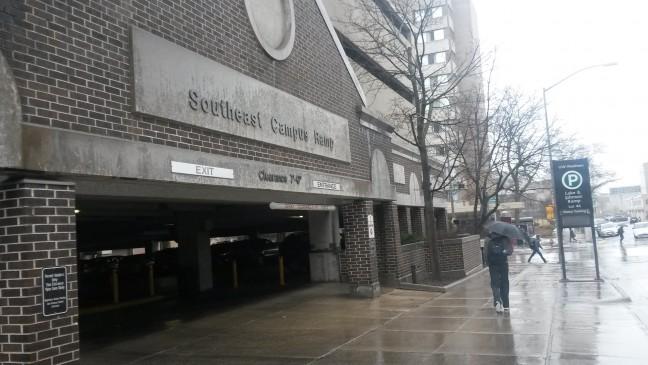Madison is a busy place: students, faculty, visitors and other residents are on campus every day. That being said, the University of Wisconsin only has around 13,000 parking spaces to accommodate nearly 65,000 students, staff and faculty.
The UW Transportation Services actually encourages students not to bring a car to school, claiming there simply is not enough room to accommodate everyone. To apply for a student parking permit through the university, students must submit their application for the fall semester starting from mid-May to mid-June. In addition, students must meet certain criteria to even be considered for a permit. Permits are only allowed for commuting students who live beyond one mile of the Madison city transit system, students who work off campus at least three times a week or students with unusual or special needs. The latter two type of students must provide official documentation to supplement their application.
New legislation discouraging moped usage big step for student safety
Furthermore, students who do attain parking passes through the university cannot leave their car parked in one spot for more than 72 hours and must move their vehicles for football games, basketball games or really whenever the university asks them to relocate. Most notably, prices for the 2018-2019 school year ranged from $916 to $1,310.
Since it’s ridiculously difficult and extremely expensive to attain a parking permit through the university, most students are forced to turn to other options. Some apartment buildings and private house owners rent parking spaces to students, but these can be unreliable and still relatively expensive for off-campus parking.
The City of Madison reported that “over the next 40 years, Madison is expected to add 25,000 residents per decade, and about 1,500 jobs per year.” This will add even more demand and will cause significant stress to the students already scrambling to find affordable parking on campus.
The need for more parking is not just a matter of availability. Most students who have cars on campus do so because they need them for an internship or off-campus job, often making money for tuition, housing, food and more. While students are eligible for free Madison Metro bus passes through the Associated Students of Madison, public transportation is often unreliable. Increased crowdedness on buses is Madison Metro’s greatest concern. That, combined with the extensive amount of time it takes to get from one side of the city to the other on the bus line, causes low-income students who are already struggling to spend even more money on parking.
UW proposed a new parking garage on Linden Drive, to replace what is currently lot 62, located across from the Natatorium. The garage would provide 600 spots, as opposed to the 410 spots lot 62 currently provides. Specifically, the lot would create 120 new visitor spots, which are part of the 2,000 new visitor spaces the university hopes to add over the next 20 years.
The problem, however, is not visitor parking. The university has a variety of garages and timed parking stalls, available for payment through the Parkmobile website or app. Where the university really lacks parking options is for those that need parking long-term and keep their car parked for days at a time in between uses. Making those options affordable for low-income students who need reliable transportation to work so they can finance their education must also be prioritized further.
Unless the university can lower its costs and increase its parking availability, students will continue to use other resources to find long-term parking for their cars. Given that both options are extremely expensive, low-income students or those who struggle financially are put at an even greater disadvantage.
To say this is unfair is an understatement. UW transportation services needs to make expanded options for low-income students a greater priority than those of visitors. We need to take care of our own.
Courtney Degen ([email protected]) is a sophomore majoring in political science and intending to major in journalism.














